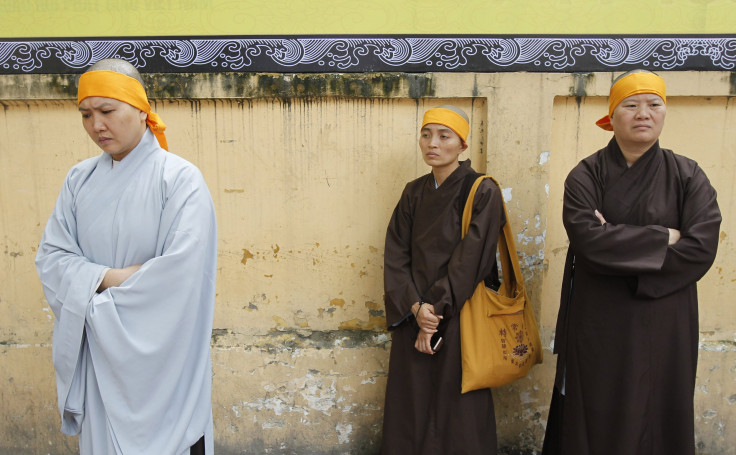Cambodia Evicts Vietnamese Monks, Destroys Shrine On Military Land

A handful of Vietnamese monks were evicted from Cambodia this week after authorities burned down their homes, a statue of a goddess spirit and an illegally built shrine. The monks did not have permission to build the shrine on a navy-controlled island off Koh Kong province, government officials said.
The 10 Vietnamese citizens detained in Wednesday's crackdown will not be allowed to travel to the island again. “They have come to build the shrines since May 2014, but they only come for one or two months then they leave,” Koh Kong provincial police Chief Sam Khit Vean told reporters.
This isn't the first time Cambodian officials have brought charges against local monks. In March, four Cambodian Buddhist monks were defrocked after they were caught partying at a karaoke parlor. The Phnom Penh Post said suspicions were aroused because of the men's shaven heads.
In June 2014, the chief monk of a pagoda in Kandal province was arrested for getting drunk and crashing an SUV.
Buddhist monks are forbidden from drinking alcohol and taking drugs. They also must abstain from sex. Theravada Buddhism is practiced by 95 percent of Cambodians.
Relations between Cambodia and Vietnam have remained fluid since the final Vietnamese soldiers left Cambodia in September 1989 after a yearslong, violent occupation. A five-hour drive separates the Cambodian capital Phnom Penh and bustling Ho Chi Minh City, the largest city in Vietnam.
Last year, demonstrators burned a Vietnamese flag outside the Vietnamese embassy in Cambodia, but Khieu Sopheak, a spokesman for Cambodia's Ministry of Interior, said at the time that the flag burning would not affect relations between the two countries. The demonstrators were simply “expressing their opinions in a democratic country,” he told Radio Free Asia’s Khmer Service. “Cambodia is different from Vietnam. Cambodia adheres to a form of liberal democracy with a multiparty system. Cambodia allows freedom of expression under the framework of the law."
© Copyright IBTimes 2024. All rights reserved.












